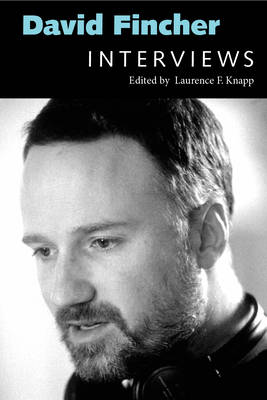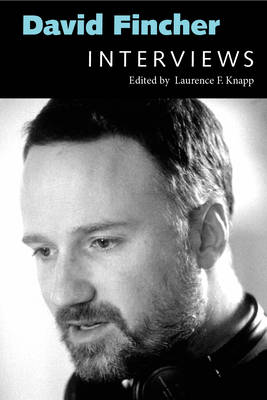
- Afhalen na 1 uur in een winkel met voorraad
- Gratis thuislevering in België vanaf € 30
- Ruim aanbod met 7 miljoen producten
- Afhalen na 1 uur in een winkel met voorraad
- Gratis thuislevering in België vanaf € 30
- Ruim aanbod met 7 miljoen producten
Zoeken
Omschrijving
David Fincher (b. 1962) did not go to film school and hates being defined as an auteur. He prefers to see himself as a craftsman, dutifully going about the art and business of making film. Trouble is, it's hard to be self-effacing when you are the director responsible for Se7en, Fight Club, and The Social Network. Along with Quentin Tarantino, Fincher is the most accomplished of the Generation X filmmakers to emerge in the early 1990s. This collection of interviews highlights Fincher's unwavering commitment to his craft as he evolved from an entrepreneurial music video director (Fincher helped Madonna become the undisputed queen of MTV) into an enterprising feature filmmaker. Fincher landed his first Hollywood blockbuster at twenty-seven with Alien3, but that film, handicapped by cost overruns and corporate mismanagement, taught Fincher that he needed absolute control over his work. Once he had it, with Se7en, he achieved instant box-office success and critical acclaim, as well as a close partnership with Brad Pitt that led to the cult favorite Fight Club. Fincher became circumspect in the 2000s after Panic Room, shooting ads and biding his time until Zodiac, when he returned to his mantra that "entertainment has to come hand in hand with a little bit of medicine. Some people go to the movies to be reminded that everything's okay. I don't make those kinds of movies. That, to me, is a lie. Everything's not okay." Zodiac reinvigorated Fincher, inspiring a string of films--The Curious Case of Benjamin Button, The Social Network, and The Girl with the Dragon Tattoo--that enthralled audiences and garnered his films dozens of Oscar nominations. LAURENCE F. KNAPP, Northbrook, Illinois, is professor of film studies at Oakton Community College. He is the author of Directed by Clint Eastwood and the editor of Brian De Palma: Interviews and Ridley Scott: Interviews (published by University Press of Mississippi) and has published in Jump Cut and other publications.
Specificaties
Betrokkenen
- Auteur(s):
- Uitgeverij:
Inhoud
- Aantal bladzijden:
- 224
- Taal:
- Engels
- Reeks:
Eigenschappen
- Productcode (EAN):
- 9781628460360
- Verschijningsdatum:
- 28/07/2014
- Uitvoering:
- Hardcover
- Formaat:
- Genaaid
- Afmetingen:
- 152 mm x 229 mm
- Gewicht:
- 562 g

Alleen bij Standaard Boekhandel
+ 373 punten op je klantenkaart van Standaard Boekhandel
Beoordelingen
We publiceren alleen reviews die voldoen aan de voorwaarden voor reviews. Bekijk onze voorwaarden voor reviews.








